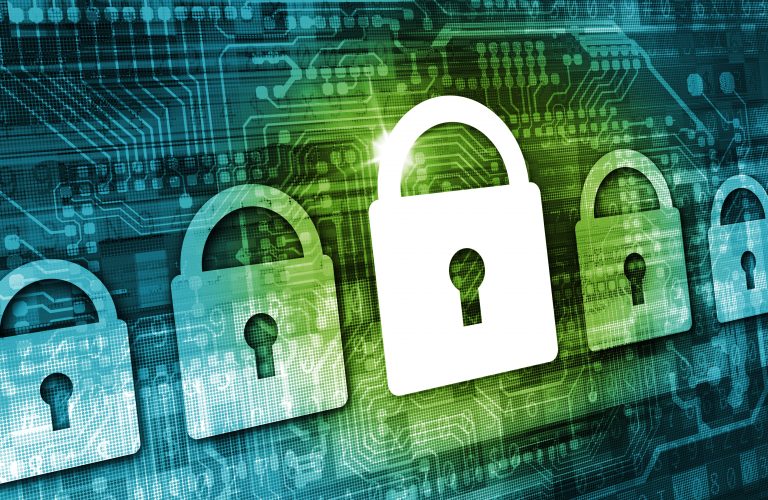Discover why HR plays an essential role in cybersecurity, the types of threats they face, and explore best practices for safeguarding sensitive information.
Cybersecurity has risen from the server rooms of IT departments to the forefront of all business operations, including the Human Resources department. HR oversees an organization’s most sensitive human data, covering everything from payroll details to personal employee information. This wealth of information puts HR at the crossroads of cybersecurity, requiring a proactive approach to defend against cyber threats.
As gatekeepers to sensitive information, HR professionals are responsible for working closely with their technical counterparts to strengthen their digital security practices. In this article, we look at the essential role of human resources in cybersecurity, identify the threats that HR professionals should be aware of, and outline several best practices to increase vigilance and defend against cyber threats.
Cybersecurity threats HR should be aware of
Cybersecurity affects everyone in the office, from the executive team to operations. With global cybercrime costs expected to rise by 15% per year over the next three years, HR teams must be extra cautious, as they are frequently prime targets for cyber threats due to their access to sensitive employee information.
Some threats that HR should be particularly aware of include:
- Phishing tactics: Phishing attacks are not new, but their complexity and frequency have increased. As an HR professional, you’re often the first point of contact for new hires or vendors, making you a prime target for attackers pretending to be job applicants or suppliers. HR specialists must stay current on the latest phishing techniques, recognize red flags like unusual email addresses, and use email filtering tools to detect phishing attempts.
- Insider threats: Insider threats are employees or contractors with bad intentions that may exploit their access to sensitive business information. HR should receive regular security training and monitor user activity to reduce these risks.
- Ransomware attacks: These attacks can severely impair HR systems by causing data loss and operational downtime. To avoid successful ransomware attacks, HR must ensure regular data backup. They should also raise employee awareness about ransomware tactics.
Tactics to improve cybersecurity for HR specialists
Here are some best practices to improve cybersecurity for HR professionals:
Regular cybersecurity training and awareness programs
One of the most effective ways to improve cybersecurity in HR is to hold regular training and awareness sessions. These should address current cyber threats, such as identifying phishing emails and the importance of using strong passwords. By staying informed and alert, you can act as the first layer of defense against cyberattacks in your department.
Implementing access management policies
HR departments deal with sensitive information, so access management policies are essential. It’s important to ensure that only authorized personnel can access specific data. Implementing role-based access controls (RBAC) can help limit data exposure and reduce the likelihood of information breaches by ensuring employees only access data necessary for their roles. Keep access rights updated, especially when employees change roles or leave the company. To further secure critical data, organizations should consider endpoint privilege management, which helps control and monitor access to systems on a granular level. This ensures that even at the endpoint, users are granted the minimum necessary privileges, reducing potential security risks.
Encouraging a culture of security
Creating a security culture within an organization involves ensuring that every employee is accountable for cybersecurity. This includes reporting suspicious activity and understanding the potential consequences of careless behavior. Encourage employees to be part of the solution by establishing clear guidelines for secure data handling and communication. Your leadership in fostering this culture is vital to its success.
How can HR benefit from using a VPN?
HR specialists can improve cybersecurity by using a virtual private network (VPN) to access company systems from different locations. A VPN encrypts data as it travels over the internet. It establishes a secure connection that protects sensitive information, such as employee details and HR documents, from cybercriminals who may try to intercept it on unsecured networks.
A premium VPN can also help maintain data privacy and comply with strict data protection laws by concealing IP addresses and securing data transfers. This is critical for meeting regulatory standards, which, if not followed, could result in significant legal and financial penalties. Other reasons why you should use a VPN include:
- Protection against malware: A premium VPN can provide built-in malware protection by blocking known malicious websites and downloads. It can also protect against attacks by encrypting your internet connection, lowering the risk of data getting intercepted.
- Remote access security: A premium VPN allows HR professionals to securely access sensitive systems from any location, ensuring that personnel data and internal HR processes remain confidential and protected from potential breaches.
- Enhanced privacy: A VPN allows HR specialists to work anonymously by masking IP addresses. This is particularly beneficial when handling sensitive negotiations or dealing with proprietary information that competitors could target.
- Secure file sharing: HR teams often need to share large files containing personal or confidential information; a VPN allows for the secure exchange of such files without the risk of interception or loss of data integrity.
Cybersecurity is more than just a technical battle. As an HR professional, you play a vital part in safeguarding your organization against digital threats. To build a strong defense against cyber threats, HR and IT must work together. Incorporating cybersecurity into HR operations strengthens the company’s defenses while also fostering a united front where technology meets human vigilance.
By understanding the relationship between cybersecurity and human resources, acknowledging your role, and implementing best practices, you can create a safer environment for every employee across the organization.
Guest Writer














